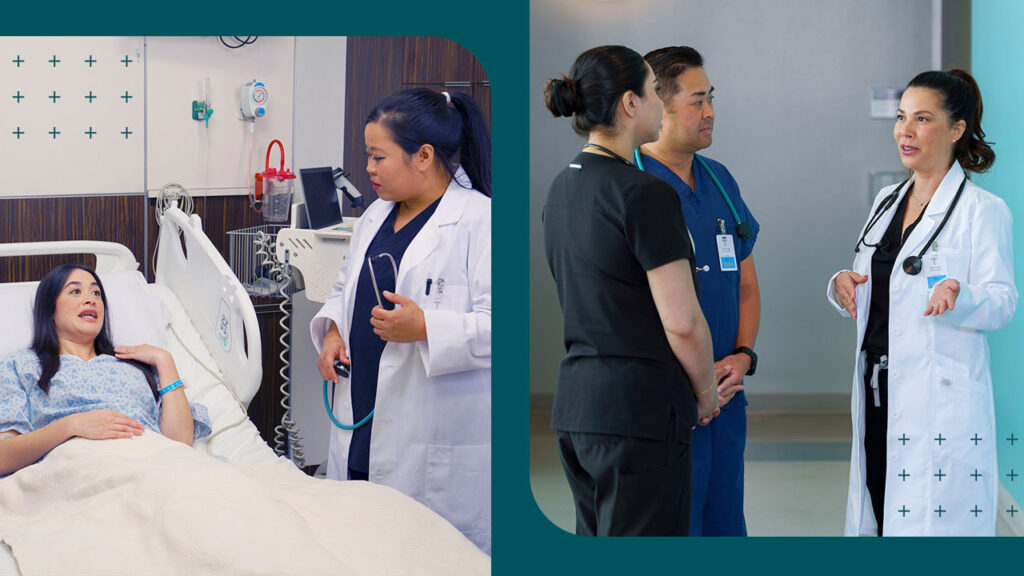Looking to earn your Bachelor of Science in Nursing (BSN) but not sure if traditional bedside care is the path for you? You’re not alone and there are, in fact, a variety of rewarding non-bedside nursing career options.
Many nursing students and practicing RNs find that while they love healthcare, they’re drawn to roles that don’t involve direct, hands-on patient care. Whether you’re looking for a different pace, reduced physical demands, or a way to apply your clinical expertise in new settings, a BSN can open the door to a range of meaningful, non-bedside nursing careers.
Keep reading if you’re curious about where your BSN degree can take you beyond traditional patient care roles.
What Are Non-Bedside Nursing Careers?
Non-bedside nursing jobs are roles that allow you to leverage your clinical knowledge, critical thinking skills, and healthcare experience without providing direct patient care. These careers span fields like education, informatics, writing, legal consulting, and health technology. While they may be lesser known than bedside nurses, these roles are equally important in the healthcare field.
These roles can offer flexibility and stability — with some offering the ability to work remotely — making them a great option for those just starting out or making a career pivot.
9 Non-Bedside Nursing Careers You Can Pursue With a BSN
The following careers allow you to put your BSN to work in non-clinical settings. Some may require additional certifications or experience, but many are accessible with a BSN and a nursing license.
1. Nurse Educator
Do you enjoy mentoring others or breaking down complex topics into simple concepts? You may want to consider becoming a nurse educator. These professionals teach in academic programs, train new nurses during clinical rotations, or lead professional development programs at healthcare facilities.
If this path sounds interesting to you, WCU’s online MSN – Nurse Educator program helps you build on your knowledge and step into the classroom with confidence in as little as 16 months.
2. Healthcare Writer
If writing is one of your strong suits, working as a healthcare writer may be the right fit for you. Not to mention, health communication is a growing area recognized by the CDC as key to public health outcomes.
As a healthcare writer, you’ll be tasked with creating educational content for patients, providers, or the public. That might include blog articles, continuing education modules, patient handouts, or health-related news. This career offers the flexibility to work remotely and the opportunity to build a portfolio that informs and empowers others using your nursing expertise.
3. Nurse Researcher
Nurse researchers design and conduct studies that improve patient care, healthcare delivery, and nursing practices. While many roles are based in hospitals, research institutes, or universities, these positions typically focus on data collection, study design, and analysis. With a BSN, you may qualify for research coordinator roles or work on teams that publish findings to advance healthcare science.
4. Legal Nurse Consultant
Legal nurse consultants work alongside attorneys to provide expert insight into medical cases. This might include reviewing medical records, preparing case summaries, or offering expert testimony. Your clinical background can give you credibility in identifying standards of care, spotting documentation inconsistencies, and explaining complex medical scenarios in legal terms. For nurses with analytical skills and an interest in law, this can be a rewarding pivot.
5. Nurse Administrator
Nurse administrators oversee the business and operational side of healthcare. This might include managing budgets, staffing schedules, and policy compliance for departments or entire facilities. Though they’re rooted in healthcare, nurse administrators typically don’t provide patient care themselves. Instead, they focus on supporting nursing teams, improving efficiency, and ensuring high-quality care through leadership.
WCU’s Nurse Leader specialization (offered through our RN to MSN, MSN, and Post-Master’s Certificate programs) can help you take the next step if leadership is your goal.
6. Health Coach
Health coaches guide individuals through wellness journeys by offering support with nutrition, fitness, stress management, and chronic disease prevention. If you’re passionate about helping others build healthy habits, this role combines personal connection with long-term impact.
Your clinical background allows you to provide evidence-based recommendations and tailor coaching to each client’s health needs.
7. Medical Sales Representative
Medical sales reps serve as liaisons between medical product companies and healthcare providers. Whether you’re selling pharmaceuticals, equipment, or devices, your nursing background helps you communicate product benefits in a way providers understand. This career often comes with travel opportunities, and many nurses find it to be a dynamic alternative to clinical roles.
8. Utilization Management Nurse
Utilization management nurses assess medical records to determine whether treatments and services meet insurance criteria for medical necessity. These nurses often work for insurance companies or hospitals in office or remote settings. This analytical role is ideal for detail-oriented nurses who enjoy reviewing documentation, applying clinical guidelines, and ensuring efficient use of healthcare resources. Becoming a utilization management nurse allows you to leverage your BSN knowledge without stepping onto a unit.
9. Nurse Informaticist
Nurse informaticists (part of the broader field of health information technology) blend nursing knowledge with data and technology to improve healthcare systems. They often work with electronic health records (EHRs), develop clinical workflows, and help implement tech solutions that make healthcare safer and more efficient.
If you’re tech-savvy and passionate about systems improvement, healthcare informatics can offer a future-facing career path rooted in healthcare innovation.
Start Your Non-Bedside Nursing Journey With a BSN
For natural leaders, educators at heart, or individuals looking to reduce the physical demands of patient-facing nursing, there are plenty of non-bedside roles that may offer exactly what you’re looking for. A BSN is an excellent starting point.
WCU’s Bachelor of Science in Nursing program helps equip students with a foundation in clinical knowledge, critical thinking, and hands-on experience. In as little as 39 months, the program is designed to prepare graduates for a wide range of careers — both at and beyond the bedside. With campuses in California, Texas, and Florida, and Career Services support from enrollment to graduation and beyond, WCU is here to help you shape your future in healthcare.
Ready to take the next step? Request information today and learn how your BSN can lead you somewhere meaningful.
WCU provides career guidance and assistance but cannot guarantee employment. The views and opinions expressed are those of the individuals and do not necessarily reflect the beliefs or position of the school or of any instructor or student.



